
[For urgent updates please follow Ukrainian Freedom News on Telegram]
Germany: discipline and silence are important
Maryana Flyak left for Dresden with her three children, two of whom are of school age (eight and eleven years old). After arriving in Germany in March, the children couldn’t join the studying process in school. Initially, there was a problem with registration and place of residence, which complicated getting to the educational institution. However, since the new academic year, which began there on August 29, the children are already in school: the youngest son is in the second grade, and the eldest one went in the sixth. Classes have on average 25-27 students.
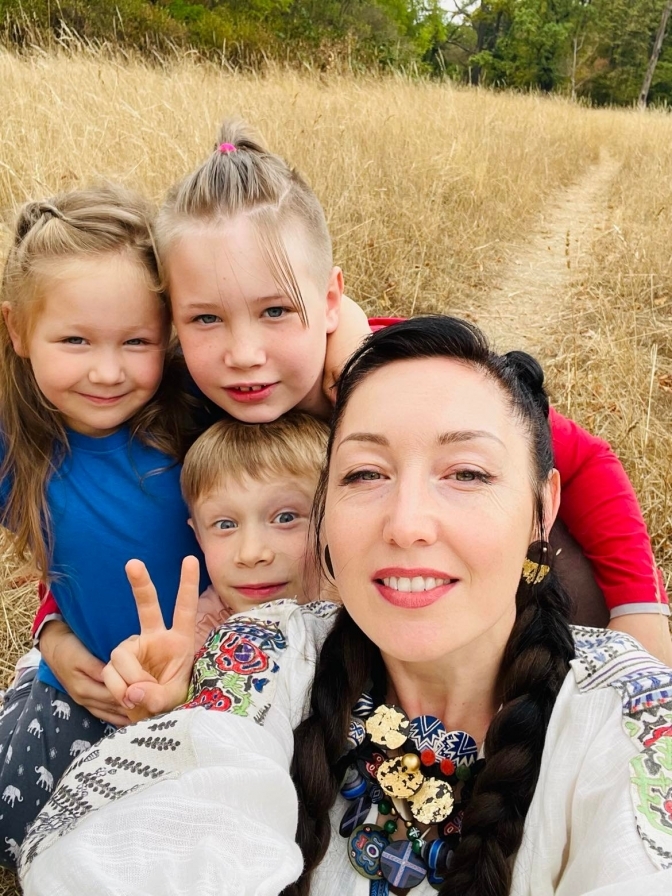
The children study in so-called Ukrainian classes, but a major drawback for the woman is that 90% of the class are Russian-speaking students. Some teachers also speak Russian, although there are some who communicate in Ukrainian.
Despite the fact that the new academic year started in Germany only a few days ago, Maryana Flyak says she has already seen many positive moments. Among pros, the woman cites school meals: in the cafeteria, children can order in advance what they will eat. Everything is organized in the form of a self-service cafe. Meals are free for immigrants, and for this purpose, they were issued plastic cards. Another positive point, according to Maryana, is the closed courtyards in each school, where children can chat, jump, play with a ball or drive cars during the long break. She also points positive the absence of homework or a small amount of it. Studying at a German school starts at 7:30 a.m. for younger students and at 8:00 a.m. for older students, which is quite early by the Ukrainian measures.
Read also: Aid, jobs and education. What Ukrainian refugees can expect in different Western countries
The interlocutor believes that what should be adopted by Ukrainian children is discipline.
«I was impressed by the discipline of German children. It is truly top notch. For example, on the floors where the German children are, there is always order and silence. Only on the floor with the Ukrainian class, can you hear screams, because the children cannot sit still. Discipline is nurtured here from kindergarten age, so [the German] children go to school already educated,» – says the interlocutor.
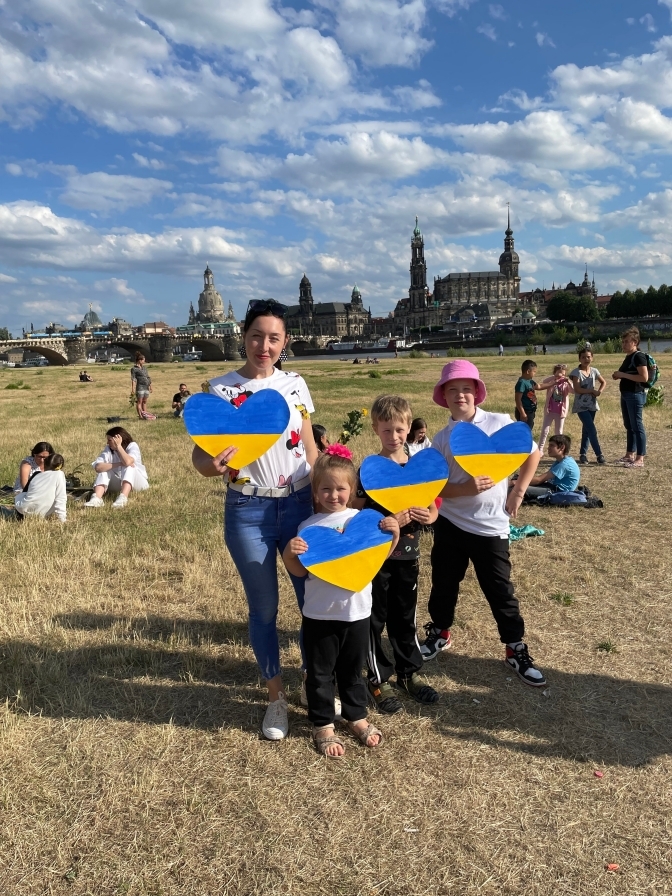
In Lviv, Maryana’s sons, Yurii and Yustyn, studied in one of the Sykhiv schools. After coming to Germany, the older one constantly communicates with his classmates and hopes to return home. The parents transferred the younger son to the external degree of education in the Lviv school [when he can be physically absent in Ukraine and obtain his degree while being abroad]. The older son will not study like this at the moment, though the teacher promised that after returning to Ukraine, he will be able to take a place in the class.
«My children really want to come back to Ukraine, and we’ll definitely do it. Maybe it will happen before the new year, maybe after. It’s difficult to predict anything at the moment, but we do not consider the option of staying here for a long time. The children say that the Lviv school is much better. But I understand that the problem lies in the teaching of the Russian language and children’s lack of education,» – Maryana Flyak adds.
Scotland – safety and friendliness
On July 8, Erika Tatchyn with her two schoolgirl daughters, six-year-old Anna-Maria and ten-year-old Marta, moved to a small town near Glasgow in Scotland. In Lviv, the younger daughter went to the St. Nicholas kindergarten, the older one – to the state school «Budokan».
The woman says that one of the main reasons for moving to another country was for her children to get an education.
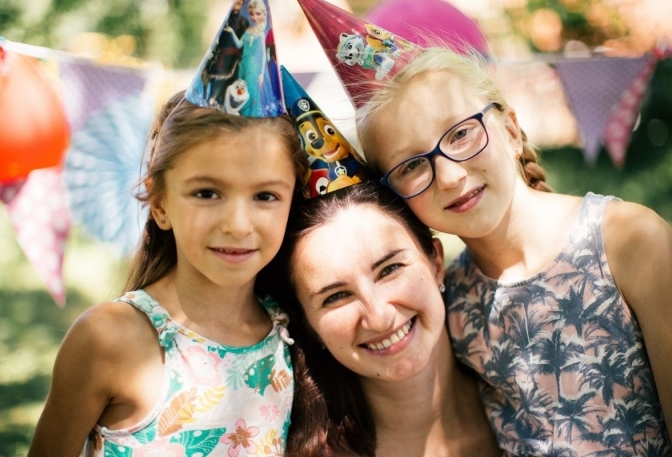
«There was an unknown. We didn’t know what the education would be like, everyone around us was talking about online education. Given that for six months preceding the war, the children were already studying remotely, we decided to go abroad,» – she says.
Scotland was not chosen by chance. Firstly, there were friends who already lived here and told Erika a little about the curriculum. Secondly, there is a free English-language school in Scotland, unlike in other countries where English-language schools are paid. Moreover, if the youngest daughter earlier went to kindergarten in Lviv, there she could immediately go to the third grade. The fact is that in Scotland, children can go to school from the age of four or five. From 5.5 years old, school is compulsory for everyone. The eldest daughter studies in the sixth grade. In Scotland, Erika Tatchyn’s daughters go to a local public school, which has a lot of its own rules. In particular, it’s forbidden for parents and outsiders to come indoors. It’s also not allowed to take pictures of students. Permissions are required for everything.
Read also: The island of education, or how Ukrainian teachers opened a school for refugees in Romania
«Discipline at the school my children attend is strict. We, parents, sign some forms and consent every day. The issue of safety is of primary importance here,» – the woman says, stressing that she sees more advantages than disadvantages in this.
Children are at school from 9:00 a.m. to 3:00 p.m. All lessons are in English. For the interlocutor’s daughters, this is not a problem, although they did not speak English well before that. In general, teachers and students are kind and friendly, always ready to help. There are ESL teachers at this school who work with children whose first language is not English, helping them with reading and writing.
Classroom lessons are interactive. Children are not scolded, and the teacher are not grading them. If the student did not understand something, did not have time to do something, they are helped, and not only by the teachers. Each child has a classmate who helps them get along.
«We like the friendly attitude here. I don’t know where the teachers get so much emotional resources. Everyone is interactive, no one scolds anyone. And the children are also all friendly, they are kind to the newcomers, they help them,» – she believes.
As for education itself, it is stronger in Ukraine, the woman says. In particular, we are talking about a foreign language. In Ukraine, it’s taught better, faster and more persistently.
«When we came here, we were extremely worried that the children wouldn’t know something, wouldn’t have time. And it turned out that it was in vain. Now, on the contrary, I am concerned that they do not miss something from what is currently being taught in the Ukrainian school,» – the woman explains.
As for Scottish school meals, they are free up to the fifth grade. In the upper classes, the fee is almost £2.50, although refugees can apply for special grants, and then it will be free.
At school, children are given fruit, but lunch cannot be called healthy: a lot of french fries, fish and chips [fried fish with french fries], burgers between soup or salad. For lunch, there are sweets, which are obviously pleasing to children, and milk. There is practically no homework. As for the extracurriculars, there are quite a lot of them, some are free, and some are paid. For example, scouting and music are free, while swimming is not.
Read also: Ukrainian schools need more serious shelters than in Israel
The issue of security is also very important here. Erika Tatchyn must accompain her daughter to school because children under the age of 12 cannot be sent to school without adult supervision. This is obligatory despite the fact that many people in yellow uniforms at crosswalks help schoolchildren to cross the road safely, the woman says. Children are picked up before classes and returned after classes by teachers at the school gates.
«My daughters are satisfied with the local school. Most of their class is made up of local schoolchildren, although there are also many refugees from Syria. There are also Arabs and Hindus. Only four children in the entire school are Ukrainians,» – the interlocutor claims.
Erika’s daughter completed the last academic year at the Lviv school online. They have not yet decided whether this format of training will continue, and, probably, will switch to the external degree, so as not to burden the children.
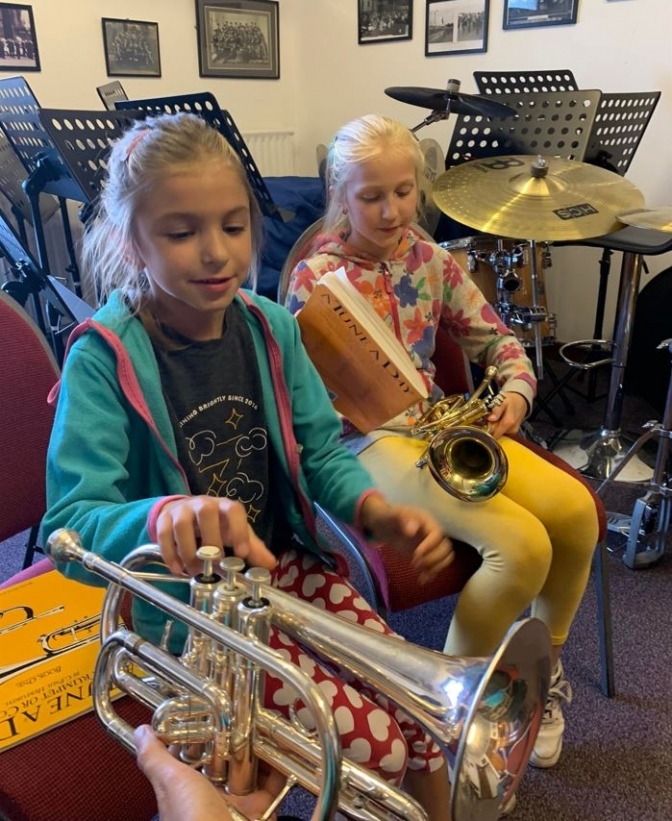
The woman says that her daughters are impatiently waiting to return to Ukraine. However, it’s not yet known when this will happen.
Sweden – initiative and formation of soft skills in children
Olena Zhupanova, the operations director of the chain of bookstores, writer and teacher, returned to Ukraine in mid-August. Prior to that, she spent five months with her two children in Stockholm, Sweden.
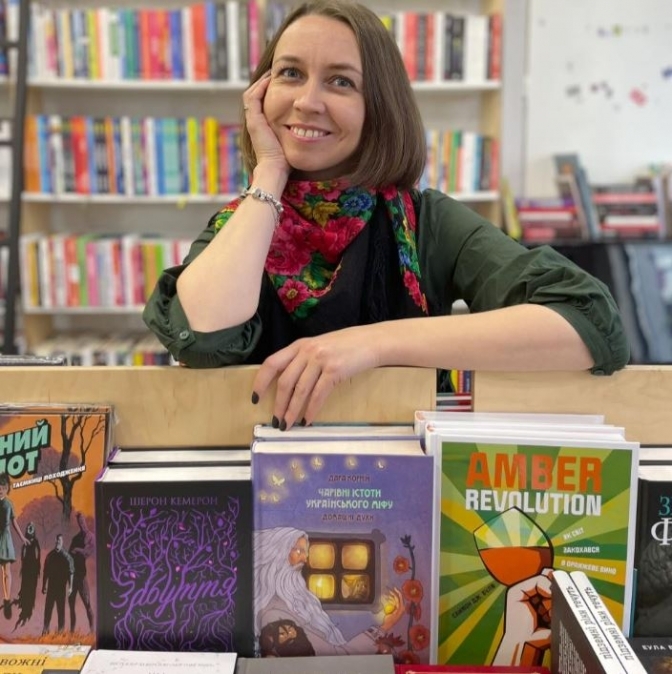
Olena is from Kyiv, although she lives in Vinnytsia. She says it’s safer there. On March 5, the woman went to Sweden with her children, who are four and 14 years old. At first, they lived with friends, because the migration service offered housing mainly in small towns, where it was easy to find a job. And since they all missed their home and relatives, they decided to return to Ukraine.
In Sweden, Olena’s eldest son studied at a public school, and she worked for three months as a teacher’s assistant at the International English Language School. Children from different countries study there: India (half of all students), China, Serbia, Belarus, Australia, and Russia. In the class where Olena taught, there was only one child from Ukraine – a boy from Kharkiv.
According to the interlocutor, in Sweden, great attention will be paid to the formation of so-called soft skills in children: students communicate easily, work a lot in groups, are always proactive, and are not afraid to express their opinion. One’s own project work and its presentation are very important. Handmade is also very popular here. Students, in addition to studying, sculpt, paint, glue, and make crafts. In addition, they also move a lot. Regardless of the weather, a daily walk that lasts from 40 minutes to an hour and a half is mandatory, even though the school is located in the centre of Stockholm.
The structure of the educational process is also different from Ukrainian – it is block-based: linguistic, mathematical, and natural science blocks. Lessons start at 8:00 a.m. and end at 3:00 or 4:00 p.m.
Coming to class late is not allowed. If you did not manage to come on time, you must explain the reason, otherwise, wait for a call from the teachers and the directorate.
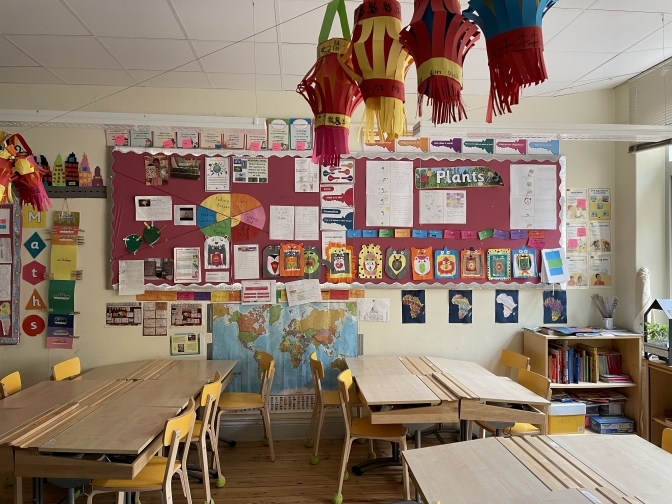
«If the child did not come to school, it means that something had happened. Even if the parents go to the doctor with the child, they will have to report it in the online system the day before. You can’t go on vacation or, for example, to your grandmother during the school year either. It should be planned for the holidays, which are arranged for students three times a year, lasting one-two weeks,» – says the woman, adding that there is almost no communication between teachers and parents.
All questions should be resolved via e-mail. It is impossible to write to teachers on social networks, as is often the case in Ukrainian schools, no one has the teacher’s phone number either.
Food at the school, where Olena’s children studied, is organized according to the principle of a buffet table. Schoolchildren eat vegetables and meat dishes every day, fish is provided twice a week. The food is mostly not spicy, healthy and also free. As for homework, there is not much of it. For example, once a week, teachers can give a task that can be completed in two or three hours. As a rule, it is made to consolidate the passed material.
«I liked the fact that the older child had such a subject as housekeeping. As far as I know, it is taught in every Swedish school. For this, there is a fully equipped kitchen where children prepare food, and a refrigerator filled with products. Even in kindergarten, children put the dishes in the dishwasher themselves after lunch. And these are three or four years old! They really like it. My son, for example, has already baked cookies, bread, and prepared various dishes,» – says the interlocutor.
However, there are also disadvantages, and not only did Olena Zhupanova notice them, but also the Swedes themselves. This applies to the teaching of mathematics.
«If we compare it with the Ukrainian school curriculum, then mathematics is «weak» here [in Sweden]. For me, this is a minus, because my son has abilities in this subject. Even students from India practice with their Indian tutors online. Still, this is the norm for Swedish children, as they argue they’ll make up for it later, in high school,» – Olena explains.
Her eldest son Ilya managed to make friends with many in Sweden. He misses them. And also, according to the woman, he lacks the friendliness of his surroundings. The boy says that there, in a foreign country, you can express yourself more freely, dress up, and feel supported in everything. Ilya is studying online at the Kyiv school. The family can return to Sweden but does not really want to.
«Sweden is great, one of the best countries to live in. But at the same time, it is expensive and difficult to immigrate. So, I think, if we return there, then only as tourists,» – says Olena Zhupanova.
By Olha Shveda, translated by Vitalii Holich
Full or partial republication of the text without the written consent of the editors is prohibited and considered a violation of copyright.
Follow us on Facebook and Instagram. Lviv Now is an English-language website for Lviv, Ukraine’s «tech-friendly cultural hub.» It is produced by Tvoe Misto («Your City») media-hub, which also hosts regular problem-solving public forums to benefit the city and its people.












